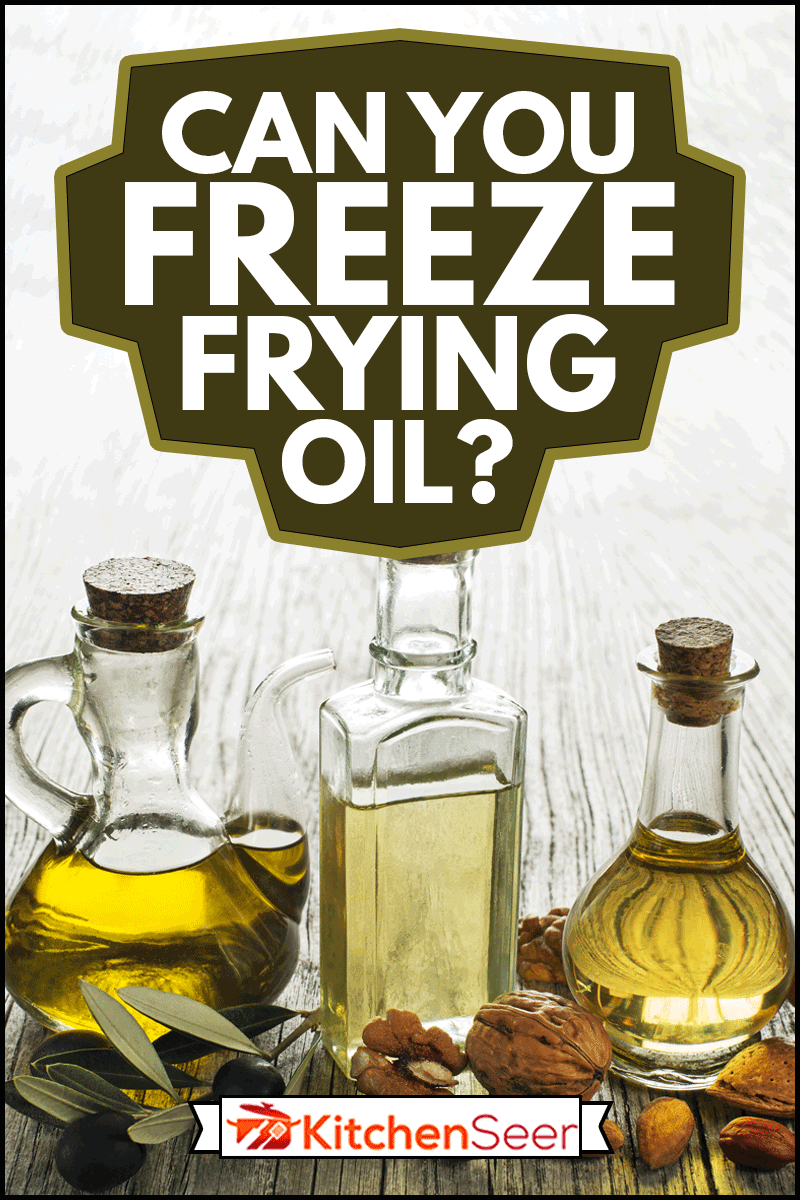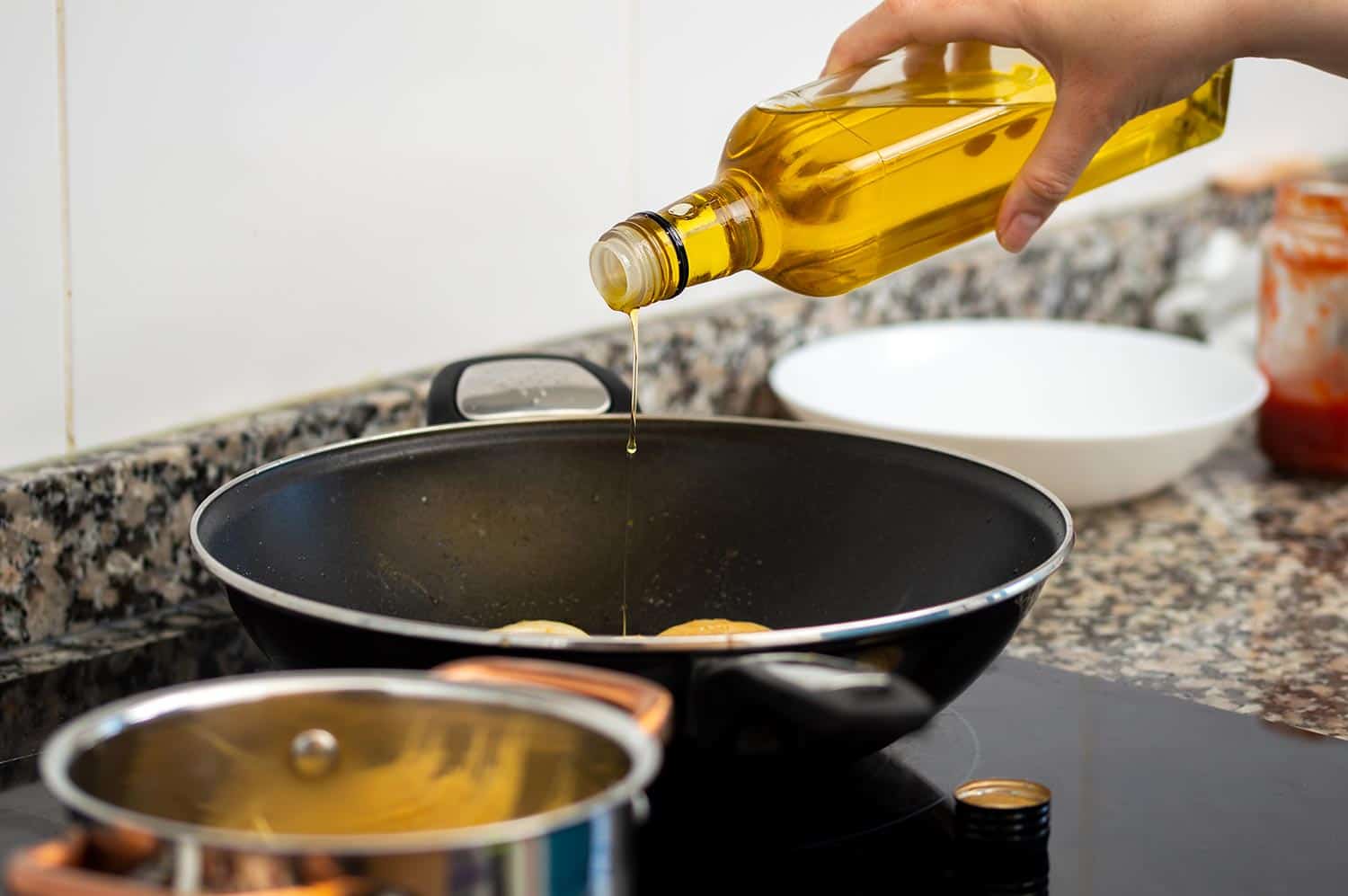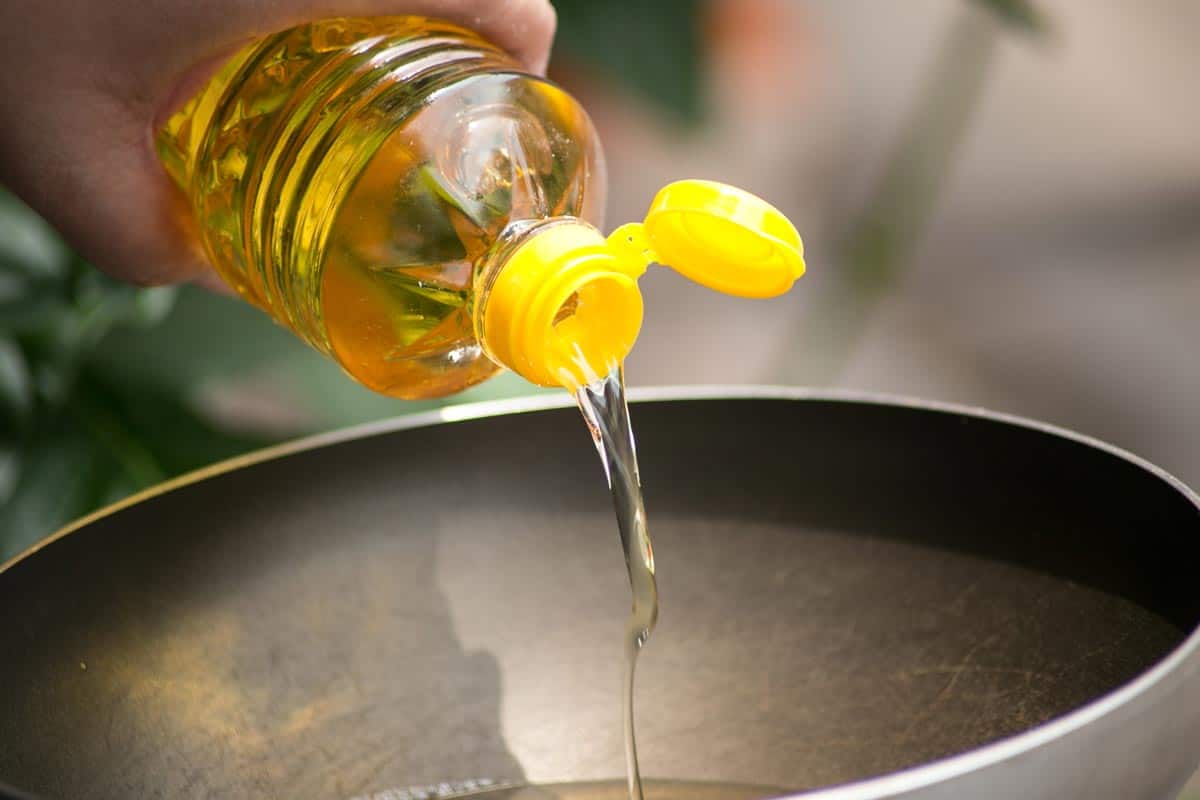Frying oil is a staple in kitchens worldwide, being a key ingredient in many delicious dishes. One of the best things about frying oil is the possibility for multiple uses before it must be discarded. Because of this, given proper and safe storage, your frying oil can last a good while. But many cooks want to know, can frying oil be frozen and saved for a later date? Well, we have researched this question and more for you down below.
Not only can you freeze frying oil for later use, but it's also the best way to store it. The absence of light and heat keeps the process known as oxidization from occurring. This process gives frying oil that rancid taste and cloudy look that eventually will force you to throw it out. An airtight container in a cold storage space is the best way to extend your oil's lifespan.
There are a lot more details to go into when it comes to storing cooking oil. Keep on reading as we touch on these important details and more down below.

Why should I freeze my frying oil?
Frying oil is highly reusable when stored properly. Throwing it out after one use is not only wasteful for the environment but also fiscally wasteful.
You can use your frying oil multiple times in cooking and create meals just as delicious as the first time. Storing it safely and securely staves off the process known as oxidization, the bane of cooking oils of all kinds.
Oxidization is the process by which the bonds of the molecules found in oils break down when exposed to heat and light. When oxidized, oil produces harmful byproducts and compounds that make your food taste rancid upon using it. Different oils resist oxidization at different levels, but all will require safe and proper storage if you plan to reuse them for extended periods.
Given its direct ties to factors like heat and light, you can easily see now why a freezer is an excellent place for storing oil. This fact, coupled with the fact that oil doesn't traditionally 'freeze' like many other liquids, makes it a wonderful place to store your oils in between uses.
Read now on KitchenSeer.com: Can you reuse oil after frying fish?
What happens if you freeze cooking oil?

Freezing ingredients can be a bit of an intimidating prospect for a lot of cooks. It's relatively easy to do lasting damage to ingredients when trying to store them in the freezer. Along with this, some foods are difficult to revive from a frozen state. So what exactly happens to cooking oil upon freezing it?
Vegetable oil doesn't freeze solid. Because of the ingredients used in the manufacturing process, the oil may appear more solid or viscous, but it will not freeze over like water. You do, however, need to make sure your container holding your oils is airtight. This will keep any contaminants and bacteria from entering and spoiling your oil.
You might notice some separation of the compounds of your oil upon taking it out of the freezer. This is natural and doesn't affect the quality of the oil whatsoever. The integrity of your cooking oil won't be affected by freezing at all. When you decide to use it and heat it back up, it will reconstitute and work perfectly.
Can you freeze oil and reuse it?
The freezing process not only does nothing to harm the integrity of your oil over the long term, but it also helps keep the cycle of oxidization at bay. As previously mentioned, heat and light are the two major contributors to the eventual spoiling of oil.
Frying oil can be reused multiple times if kept fresh and sanitary during the storing process. This is one of the biggest reasons to store it in the first place. There's no logical reason not to save your frying oil and reuse it in the future. It's pretty wasteful to throw oil down the drain after every single meal. Take steps to make sure your oil is strained clean after each use, and you'll be fine.
Can canola oil be frozen?
Canola oil is a bit of an exception to the above. An incredibly healthy oil, it is low in saturated fats and high in monosaturated fats, which can improve your cholesterol and the health of your heart. This leads to its use in many cooking dishes, but it is different from most other cooking and frying oils.
Putting canola oil in the freezer causes it to freeze. This is because of its chemical makeup when compared to other common cooking oils. This means that storing your canola oil actually won't extend its shelf life, unlike other oils. Indeed it can even lead to a decreased quality in your canola oil upon thawing.
The best option for storing your canola oil is a dark and dry pantry. You can keep it in your refrigerator and maintain the same shelf life as you otherwise would. But generally speaking, the freezer is not the ideal place for canola oil.
How long can you keep frying oil?

The question of 'how long can I keep frying oil,' unfortunately, is a variable one. The type of oil, the care you put into keeping it as clean as possible, the temperature and humidity where you live are all factors that play a role in how well and long your oil will keep. If not storing in the freezer, please don't use your oil for longer than two months. This is the point where sanitation outweighs any cost benefits.
Every time you are using oil, you subject the molecules within it to a process known as polymerization. This is where the molecules within the oil clump together to form much larger molecules. This is what leads to frying oils developing darker colors and gummier texture upon each use.
Oils can provide some difficulties when figuring out whether they're good or not based on sight alone. Some globs in the oil and separation of the layers can mean little more than a necessary thawing. Some visual signs that are red flags, however, are things like an increasingly cloudy appearance. If you spot any foam layer resting on the top of your oil, you should likely throw that out as well.
Thankfully, it's pretty easy to tell when oil has gone bad based on the smell. Smell your oil regularly before use, and if it has that acrid, heavy rancid smell of a cheap take-out restaurant, you'll know it's time to say goodbye. Please don't bother trying to save this oil; it won't taste good in your cooking at this point anyways.
Read now on KitchenSeer.com: Does Frying Oil Go Bad? How Long Does it Last?
How do I store oil after frying?
There are quite a few ways you can store your used oil after frying with it. The first thing to note is that you should always let your oil cool to room temperature before storing it in containers and moving it to pantries, fridges, or freezers. You'll need to do some handling of it before it goes into any sealed container.
Straining is a critical first step. Any leftover batter or pieces of meat that might have gotten into your oil are ripe for bacteria and rot to collect. You can use a simple cheesecloth to strain out these larger pieces out of your oil.
Pour it directly into a container with a tightly sealable lid, preferably glass, so you'll be able to observe the oil without breaking the seal if need be.
As mentioned, the darker and cooler your storage space, the better for most oils. If necessary, you can do a little research on the specific kind or brand of oil you're using and see if there are any tips on how to best store that type of oil. Don't forget that some discoloration or separation might occur if using your refrigerator or freezer to keep your oil. Let your oil return to room temperature before inspecting it.
In Closing

Storing and reusing your frying oil is a smart choice for multiple reasons. Not only are you reducing food waste that can heavily impact the environment, but you're also cutting down on costs. Many high-grade oils cost a fair amount, and there's simply no reason not to keep them so long as you are intelligent and sanitary about it. Keep your oil correctly, perhaps even in the freezer, and you'll be enjoying your delicious fried meals for a good while to come.






